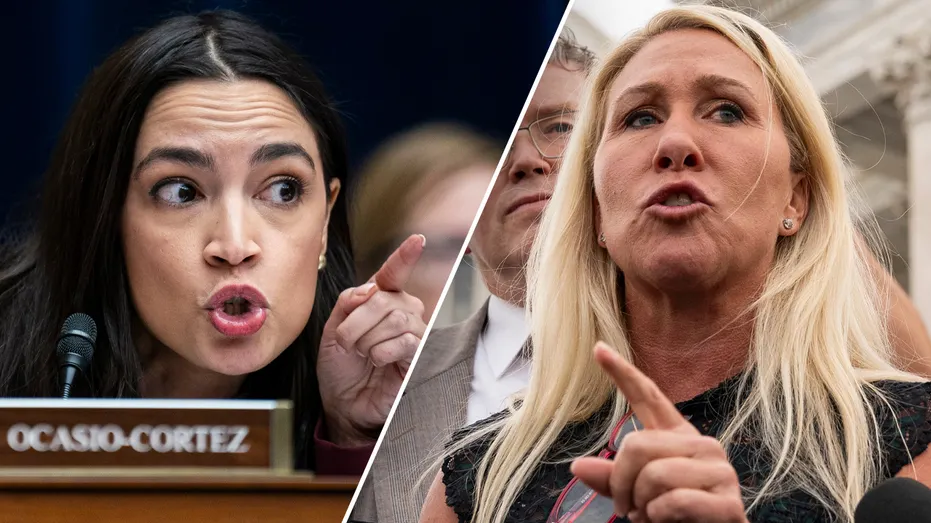

Several Supreme Court justices yesterday seemed disturbingly open to far too wide a scope of supposed presidential immunity from criminal prosecution. Almost nothing in the actual text of the Constitution provides for such immunity.
At oral argument in Trump v. United States, Justice Clarence Thomas asked the right question of Trump’s attorney, John Sauer: “Could you be more precise as to the source of this immunity?” Sauer answered that the constitutional source is the clause in Article II that says, “The executive power shall be vested in a President of the United States.”
Thomas followed up: “And how does that happen?” Sauer’s answer was clever but weak. He cited a separate, nonmajority opinion by Thomas himself in a 2015 case called Zivotofsky v. Kerry, in which he paraphrased Thomas to say that “the executive vesting clause does not include only executive powers laid out explicitly therein but encompasses all the powers that were originally understood to be included therein.”
Of course, there’s nothing in that vague clause that says anything about immunity from criminal prosecution if the president commits criminal acts. Worse for Sauer’s argument, though, is that Thomas in Zivotofsky actually argued that presidential powers were limited, writing that it would be “a distortion” of a presidential power to say that the president, rather than Congress, has plenary power over naturalization laws at issue in the case. In other words, even in a case directly involving specific presidential powers rather than some sort of “immunity” from ordinary criminal law, Thomas was not willing to say the “executive vesting clause” was some sort of grant of near-unlimited power, much less a “get out of jail free” card.
Even if some form of immunity for a president using his “vested” powers does exist, those vested powers themselves are limited.
Alas, Justice Brett Kavanaugh and especially Justice Samuel Alito asked questions indicating concerns almost diametrically opposed, constitutionally speaking, to the things that really should be alarming. Let’s just take the Alito example. Alito, acting as if the current series of Trump trials is a norm rather than a bizarre exception related to former President Donald Trump’s particular affinity for bending rules, worried that former presidents in the future “may be criminally prosecuted by a bitter political opponent, [and] will that not lead us into a cycle that destabilizes the functioning of our country as a democracy?”
But presidents, no less than and in some ways far more than ordinary citizens, enjoy all the other protections of the Constitution and its Bill of Rights and of more than two centuries of civil law. Alito is suggesting that this wondrous edifice of procedural and substantive protections is flimsy. Indeed, the opposite is true, especially with regard to former presidents. It is ordinarily thought so hard to find a unanimous jury to convict someone who once enjoyed majority national support that the Justice Department has declined to prosecute not just former presidents but a former first lady (see: Hillary Clinton), even when the case against her looked overwhelming.
Justice Amy Coney Barrett, meanwhile, correctly illuminated how Trump’s argument amounts to an endless ratchet in a president’s favor. Sauer argued that no president or former president can be criminally prosecuted for even the most egregious crimes as president unless he first is impeached. Yet the main reason many senators declined to convict Trump when he was impeached for his riot-inducing actions in contesting the 2020 election was that they said they bought Trump’s argument that only current, not former, presidents can be impeached.
Barrett asked, therefore, “What if the criminal conduct isn’t discovered until after the president is out of office, so there was no opportunity for impeachment?” In other words, Trump says he can’t be convicted in impeachment proceedings if he is out of office and also that if he isn’t impeached, he can’t be criminally tried. Logically, then, that would make a president completely above the law, as long as he can keep his criminality hidden until the day after he leaves office.
Yet nothing anywhere in the Constitution says or even strongly implies that a president is above the law. If he is, then it really ought to frighten every voter to hear how Sauer answered this question from Justice Sonia Sotomayor: “If the president decides that his rival is a corrupt person and he orders the military to assassinate him, is that within his official acts to which he has immunity?”
CLICK HERE TO READ MORE FROM THE WASHINGTON EXAMINER
“That could well be an official act,” Sauer responded.
Yes, even assassinating a rival. This is ominous. The immunity Trump seeks is far more dangerous than anything Alito worried about. It also is a nontextual constitutional appurtenance. That’s why, to the extent any sort of immunity is recognized, it ought to be well defined and very narrow.















